
The Ice Hockey World Championships are an annual international men's ice hockey tournament organized by the International Ice Hockey Federation (IIHF). First officially held at the 1920 Summer Olympics. The IIHF was created in 1908 while the European Championships, the precursor to the World Championships, were first held in 1910. The tournament held at the 1920 Summer Olympics is recognized as the first Ice Hockey World Championship. From 1920 to 1968, the Olympic hockey tournament was also considered the World Championship for that year.
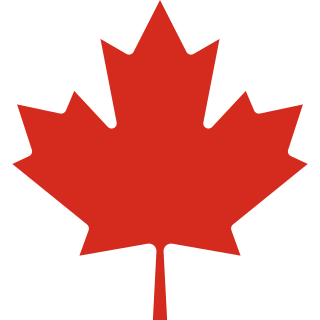
The Canada men's national ice hockey team is the ice hockey team representing Canada internationally. The team is overseen by Hockey Canada, a member of the International Ice Hockey Federation. From 1920 until 1963, Canada's international representation was by senior amateur club teams. Canada's national men's team was founded in 1963 by Father David Bauer as a part of the Canadian Amateur Hockey Association, playing out of the University of British Columbia. The nickname "Team Canada" was first used for the 1972 Summit Series and has been frequently used to refer to both the Canadian national men's and women's teams ever since.
The men's ice hockey tournament at the 1948 Winter Olympics in St. Moritz, Switzerland, was the sixth Olympic Championship, also served as the 15th World Championships and the 26th European Championships. Canada won its fifth Olympic gold medal and 12th World Championship, represented by the Ottawa RCAF Flyers team of Canadian Armed Forces personnel. The highest-finishing European team Czechoslovakia, won the silver medal and its eighth European Championship. Bibi Torriani played for Switzerland which won the bronze medal, and became the first ice hockey player to recite the Olympic Oath on behalf of all athletes.

The men's ice hockey tournament at the 1924 Winter Olympics in Chamonix, France, was the second Olympic Championship, also serving as the second World Championships. The competition was held from Monday, January 28, 1924, to Sunday, February 3, 1924. Canada, represented by the Toronto Granites, defended its championship from the 1920 Summer Olympics. The United States and Great Britain took the silver and bronze respectively, while other contenders included Czechoslovakia, France, and Sweden.

The men's ice hockey tournament at the 1928 Winter Olympics in St. Moritz, Switzerland, was the third Olympic Championship, also serving as the third World Championships and the 13th European Championships. Canada, represented by the University of Toronto Graduates, won its third consecutive gold medal. Highest finishing European team Sweden won the silver medal and its third European Championship.

The men's ice hockey tournament at the 1936 Winter Olympics in Garmisch-Partenkirchen, Germany, was the fifth Olympic Championship, also serving as the tenth World Championships and the 21st European Championships.
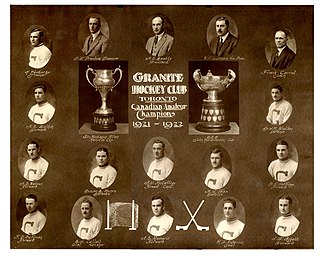
The Toronto Granites were an amateur senior ice hockey team from Toronto, Ontario. The Granites were Allan Cup champions in 1922 and 1923. They were chosen to represent Canada at the 1924 Winter Olympics in Chamonix, France. The Granites won the second consecutive Olympic gold medal for the Canada national men's ice hockey team.

Ice hockey tournaments have been staged at the Olympic Games since 1920. The men's tournament was introduced at the 1920 Summer Olympics and was transferred permanently to the Winter Olympic Games program in 1924, in France. The women's tournament was first held at the 1998 Winter Olympics.

Canada competed at the 1920 Summer Olympics in Antwerp, Belgium. 52 competitors, all men, took part in 38 events in 9 sports. These games marked the introduction of winter sports to the Olympic program ; Canada won its first gold medal for ice hockey.
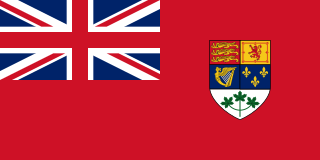
Canada competed at the 1924 Winter Olympics in Chamonix, France. They won one gold medal, in ice hockey.
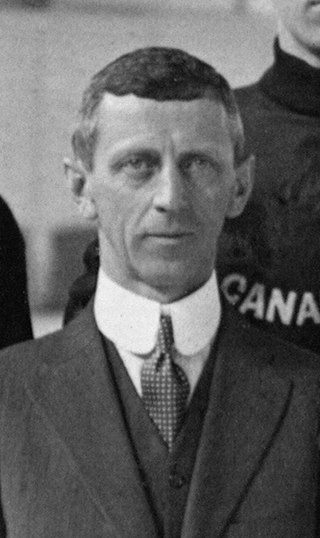
William Abraham Hewitt was a Canadian sports executive and journalist, also widely known as Billy Hewitt. He was secretary of the Ontario Hockey Association (OHA) from 1903 to 1966, and sports editor of the Toronto Daily Star from 1900 to 1931. He promoted the establishment of the Canadian Amateur Hockey Association (CAHA), then served as its secretary-treasurer from 1915 to 1919, registrar from 1921 to 1925, registrar-treasurer from 1925 to 1961, and a trustee of the Allan Cup and Memorial Cup. Hewitt standardized player registrations in Canada, was a committee member to discuss professional-amateur agreements with the National Hockey League, and negotiated working agreements with amateur hockey governing bodies in the United States. He oversaw referees within the OHA, and negotiated common rules of play for amateur and professional leagues as chairman of the CAHA rules committee. After retiring from journalism, he was the managing-director of Maple Leaf Gardens from 1931 to 1948, and chairman of the committee to select the inaugural members of the Hockey Hall of Fame in 1945.

Czechoslovakia competed at the 1920 Summer Olympics in Antwerp, Belgium. It was the first time that the nation had competed at the Summer Olympic Games, after the republic was founded in 1918. Previously, Bohemia had competed at the Olympic Games from 1900 to 1912.
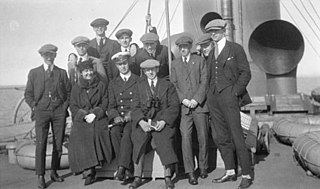
The Winnipeg Falcons were a senior men's amateur ice hockey team based in Winnipeg, Manitoba. The Winnipeg Falcons won the 1920 Allan Cup. That team went on to represent Canada in the 1920 Olympic games held in Antwerp, Belgium. There the Falcons, soundly beating all their opponents, won for Canada the first Olympic gold medal in ice hockey.

Paul Loicq was a Belgian lawyer, businessman and ice hockey player, coach, referee and administrator. He played ice hockey for Belgium men's national ice hockey team and won four bronze medals from in 1910 to 1914. He was a leading supporter of the efforts to introduce ice hockey at the Olympic Games, and served on the organizing committee for ice hockey at the 1920 Summer Olympics. After playing in the 1920 Olympics he served as president of the Royal Belgian Ice Hockey Federation from 1920 to 1935, and as president of the Ligue Internationale de Hockey sur Glace (LIHG) from 1922 to 1947, which was later known as the International Ice Hockey Federation (IIHF). During his time as president the LIHG more than doubled its membership and welcomed the first national associations from Asia and Africa, and the LIHG began hosting its annual Ice Hockey World Championships in 1930. He was also an international ice hockey referee from 1924 to 1937 at the Olympic Games, the Ice Hockey World Championships and the Ice Hockey European Championships. He served in the Belgian Army during World War I and World War II, achieved the rank of colonel, and represented Belgium as legal counsel at the Nuremberg trials.

The Canadian men's national under-20 ice hockey team is the ice hockey team representing Canada internationally in under-20 competition. Their primary participation in this age group comes at the International Ice Hockey Federation's World Junior Championship, held annually every December and January. The team also participates in various exhibition matches and occasional exhibition series, such as the 2007 Super Series against their Russian counterparts, an eight-game exhibition series commemorating the 35th anniversary of the 1972 Summit Series.
The 1947 Ice Hockey World Championships were the 14th World Championships and 25th European Championship was the first after the Second World War. It was held from 15 to 23 February 1947 at Štvanice Stadium in Prague, Czechoslovakia. Eight teams participated, but the competition was notably missing the reigning world champion, Canada. The world champion was decided for the first time by round robin league play. Czechoslovakia won the world championship for the first time and the European championship for the seventh time. King Gustav V had sent a telegram of congratulations to the Swedish team after beating the Czechoslovaks, but they had barely finished celebrating when they were upset by the Austrians, costing them the gold medal.

The 1954 Ice Hockey World Championships, were the 21st World Championships and 32nd European ice hockey championships were held from 26 February to 7 March 1954 in Stockholm, Sweden. Every team played each other once with the top three finishers receiving medals at the end. The USSR won in its first attempt, led by Vsevolod Bobrov who was recognized as the best forward of the tournament in the first ever presentation of Directorate Awards.
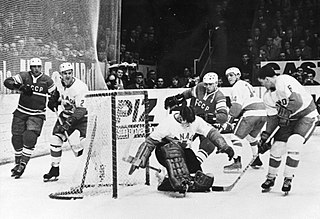
The 1967 Ice Hockey World Championships was the 34th edition of the Ice Hockey World Championships. The tournament was held in Vienna, Austria from March 18 to March 29, 1967. The Soviet Union won the tournament for the fifth straight year, Sweden won the silver medal, and Canada claimed the bronze medal.
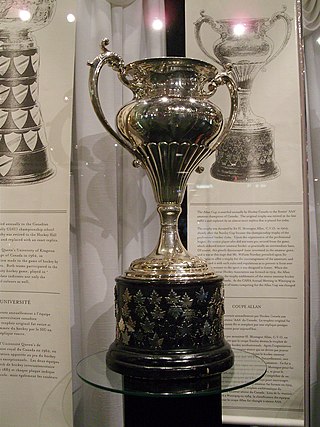
The 1935 Allan Cup was the senior ice hockey championship of the Canadian Amateur Hockey Association (CAHA) for the 1934–35 season. In the best-of-three final, the Halifax Wolverines defeated the Port Arthur Bearcats two games to none.

The 1920 Summer Olympics ice hockey rosters consisted of 60 players on 7 national ice hockey teams. Played at the Olympic Games for the first time, and later regarded by the International Ice Hockey Federation (IIHF) as the first World Championship. Teams were required to be strictly amateur, so players from the Canadian-based National Hockey League (NHL) or other professional leagues were excluded. Canada sent the Winnipeg Falcons, who had won the 1920 Allan Cup, the amateur championship in Canada.



















